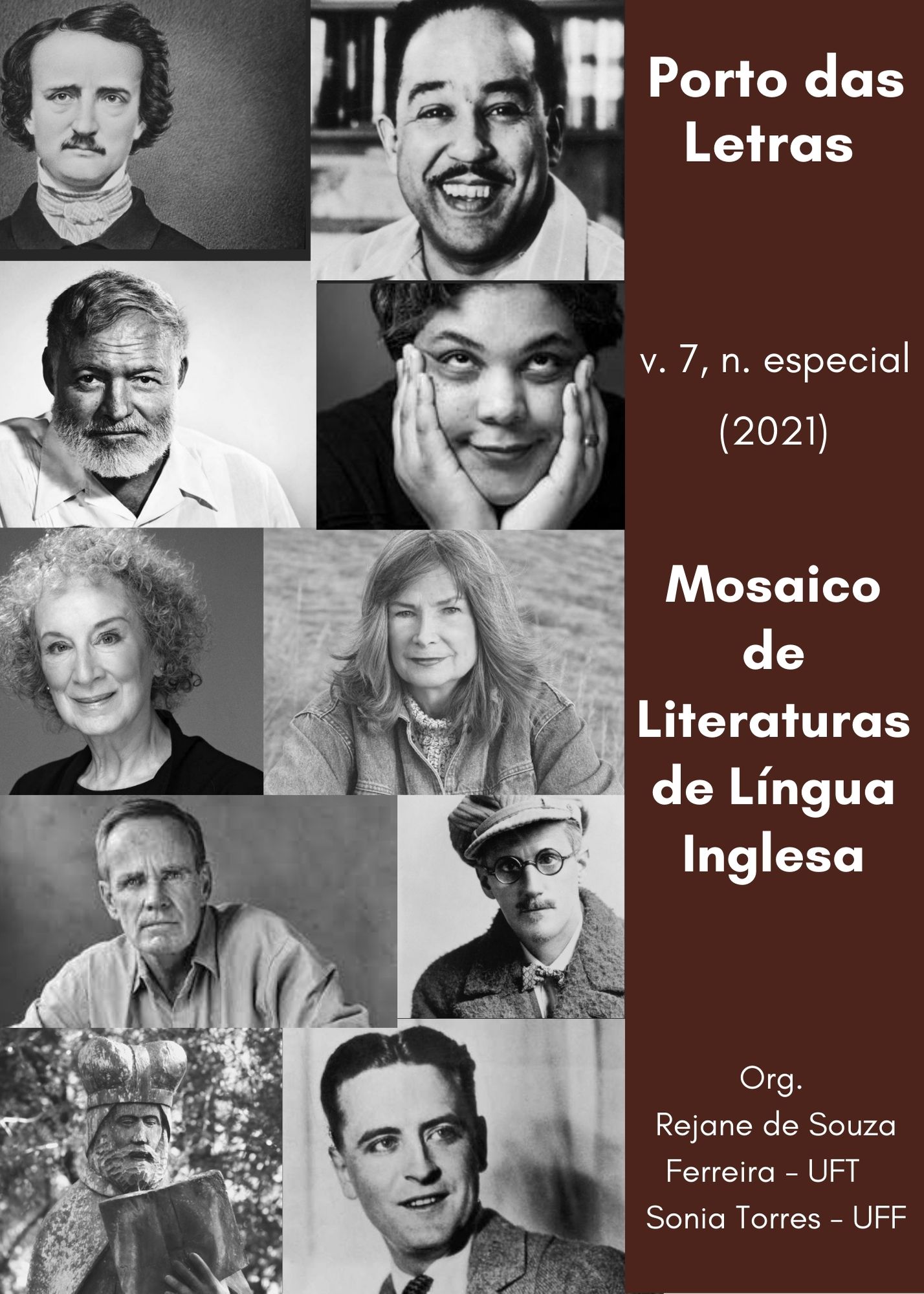“I, TOO, SING AMERICA”
UNDERSTADING BLACKNESS AND IDENTITY IN LANGSTON HUGHES’S POETRY OF PRESENCE
Palavras-chave:
Identity; Blackness; Poetry; Langston Hughes.Resumo
This work aims to analyze the American writer Langston Hughes’s (1902-1967) poetic language, focusing on the theme of race and identity of black people. Associated with Harlem Renaissance, an emancipation movement of black art produced in the 1920s and 1930s in New York, Hughes published poems, dramatic texts, short stories, and essays committed to the notion of enhancing black identity. What we call poetry of presence is the author’s poetic language that highlights the search for blackness awareness from the deconstruction of themes related to oppression, enslavement, and violence that stigmatized black identity. Poems such as “I, Too” and “The Black Speaks of Rivers” present the commitment of black people to be recognized as part of American landscape. In this sense, understanding Hall’s (2011) concept of identity is primary for the analysis of Hughes’s poems. In addition, we rely on the studies by Fanon (2008) and Mbembe (2017) to map the condition of black people in Western History. In conclusion, we underline a self-emancipation of blackness in Hughes’s poetry which left a remarkable inherited cultural and identity resistance.
Referências
BLOOM, H. Langston Hughes, Bloom’s Modern Critical Views. New York: Bloom’s Literary Criticism, 2008.
CANDAU, J. Memória e identidade. Translated by Maria Leticia Ferreira. São Paulo: Contexto, 2012.
FANON, F. Black Skin, White Masks. Translated by Charles Lam Markmann. London: Pluto Press, 2008.
GRAY, R. A History of American Literature.Oxford: Wiley-Blackwell, 2012.
HALL, S. A identidade cultural na pós-modernidade. Translated by Tomaz Tadeu da Silva, Guaracira Lopes Louro. Rio de Janeiro: DP&A, 2011.
HUGHES, L. Selected Poems of Langston Hughes. New York: Vintage Classics, 1990.
____. The Negro Artist and the Racial Mountain. In: DE SANTIS, C. C. (ed.). The Collected Works of Langston Hughes: Essays on art, race, politics, and world affairs. Columbia: University of Missouri Press, 2002, p. 31-36.
MBEMBE, A. Critique of Black Reason. Translated by Laurent Dubois. Durham: Duke University Press, 2017.
PATTERSON, A. Jazz, Realism, and the Modernist Lyric: The Poetry of Langston Hughes. In: BLOOM, H. (ed.). Langston Hughes, Bloom’s Modern Critical Views. New York: Bloom’s Literary Criticism, 2008, p. 135-164.
SPIVAK, G. Can the Subaltern Speak? In: NELSON, C.; GROSSBERG, L. (eds.). Marxism and the Interpretation of Culture. Basingstoke: MacMillan Education, 1988, p. 271-313.
TISCHAUSER, L. V. Jim Crow Laws. Santa Barbara, CA: Landmarks of the American mosaic, 2012.
Downloads
Publicado
Como Citar
Edição
Seção
Licença
Os autores concordam com os termos da Declaração de Direito Autoral, que se aplicará a esta submissão caso seja publicada nesta revista (comentários ao editor podem ser incluídos a seguir).




